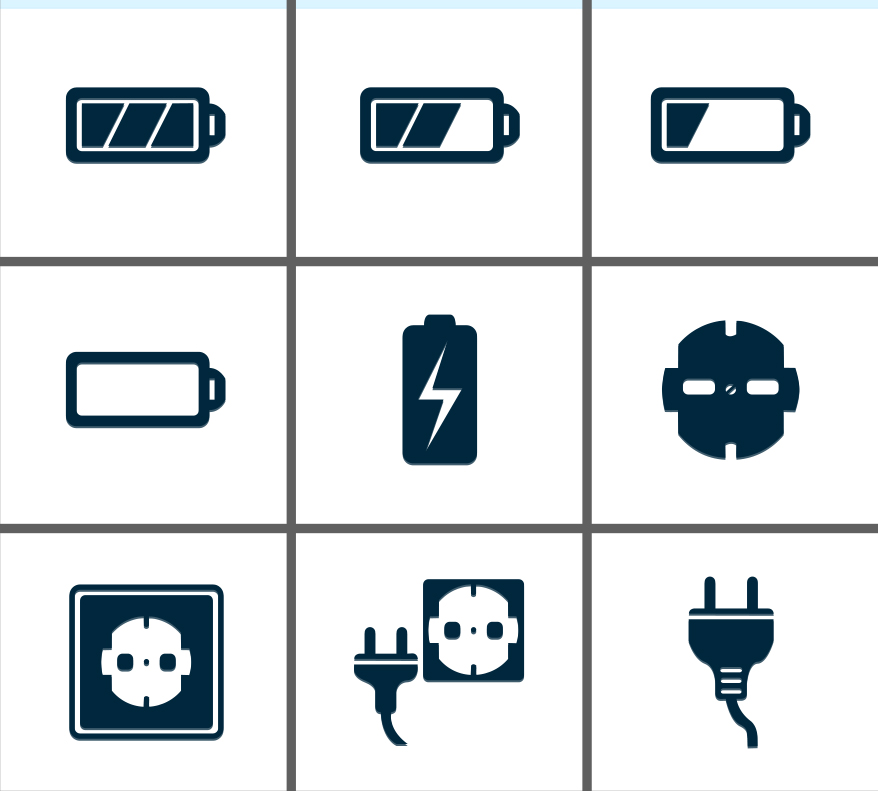Do Lithium-Ion Batteries Have Memory?
Jun 24, 2019 Pageview:2109
The popular lithium-ion batteries are known widely to be high-performance energy storage devices that are used in lots of commercial electronic appliances. These batteries are capable of storing huge amounts of energy in a volume that is comparatively small.
Formerly, lithium-ion batteries were widely believed to have no memory effect. The memory effect is ow professionals tag a deviation in the performance voltage of batteries that is caused by an incomplete charge or discharge.
Ultimately, this can result in a part of the energy that is stored being available and yet another inability to determine the level of charge of the battery.
There are so many people who are of the belief that lithium-ion batteries in the process of running out of electricity may have a memory effect. The fact is that this idea was gotten from a nickel-metal hydride battery, i.e., NI-MH battery.
These batteries have a memory effect, and if they do not run out of power, the battery will be the one to reduce the power as well as its usage time. However, NI-MH batteries have been enhanced today and do not have any memory effect.
They do not have any memory effect as a result of the nickel-metal hydride battery crystallizing to some degree, and this will lead to a reduction in capacity. Also, there is a need for regular discharge and charge in a bid to maintain its normal power.
Meanwhile, lithium batteries have no known memory effect, but you can always discharge and charge the batteries without the battery capacity being affected in any way.
What Is Memory Effect?
If you had ever noticed that your rechargeable batteries do not last as long as they used to when you newly purchased them, then this can be as a result of memory effect.
Memory effect takes place in rechargeable batteries when they are not discharged sufficiently before being recharged.
What happens next is that the batteries suddenly remember where they got up to in the former discharge cycle, and they will not recharge completely. For some battery cells, memory effect occurs when the electrolyte and metal react in a bid to form a salt.
In the ideal battery cell, everyone would surely want a uniform coating of little crystals of salt on a suitable surface made of metal. For Crystal formation, it is very difficult as this is the way metals are deposited during recharge.
All of these imperfections majorly rely on the state of charge of the battery, its charging current, charge voltage as well as temperature. In time, imperfections in a charge cycle can result in the same imperfection in the battery's next charge cycle.
As this goes on, all of these batteries pick up some of the bad memories. Note that memory effect is powerful for certain types of cells like nickel-based batteries. The other types, such as lithium, do not get to suffer these issues.
With all these, all you will need to know is that battery memory effect is actually a decrease in the longevity of the rechargeable battery's charge as a result of incomplete discharge in their previous use.
Batteries like nickel cadmium and nickel Metal hydride can enhance a memory effect when they are partially discharged before they begin recharging. So, this memory decreases subsequent charges capacity and also the future life of the battery in a device.
Memory effect can also be as a result of chargers that are designed poorly. In the same vein, memory effect can be mitigated by using the battery diligently i.e. recharging and completely discharging.
Batteries can be re-conditioned with memory effect by charge cycles and deep discharge. Some chargers we purchase have certain reconditioning modes also. There are newer battery types like the batteries based on lithium polymer and lithium ion.
They provide better capacity and a boosted capability to effectively hold a charge while they are not being used, and they do not also demonstrate memory effect when they have been discharged partially.
Does Memory Effect Exist In lithium-ion batteries
There is also another point of view available that takes battery memory effect as the battery's reversible failure. This means that the battery can actually be returned again after its performance fails.
But, lithium batteries are irreversible, and as for its capacity and performance, they will decrease with each use. This ultimately means that lithium batteries do not have a memory effect.
Additionally, in eliminating the battery memory, the user will have to charge deep and also release deep. This means that the battery voltage needs actually to reach about 1.0V.
In other news, lithium batteries do not have any existing memory effect, and the user does not have to bother him or herself.
Actually, the conception of lithium batteries is primarily to eliminate memory effect issues so that charging of the batteries will be done without any problem at all.
How To Prevent Memory Effect In Lithium Ion batteries
In a bid to prevent issues of memory effect in lithium-ion batteries, you will have to:
· Keep the lithium battery at room temperature
The room temperature is between twenty and twenty-five degrees Centigrade. One of the worst things to happen to lithium batteries is to have a complete charge and be subjected to temperatures that are high.
The mobile device battery should never be left or charged in the car if the weather is hot. Heat is a huge factor that reduces lithium's battery life.
· Allow partial discharges and avoid the full ones
Differing from NiCad batteries, lithium batteries do not have any charge memory. This means that it does not need deep discharge cycles.
To Wrap It Up
The most important factor to note is that lithium batteries are a big improvement over all other former battery types. Receiving about five hundred charge or discharge cycles from a lithium battery is not new.
The battery has no existing memory effect, and this makes them more than ideal for every one of your devices.
- Prev Article: Lithium Battery Safety Document for International Air Shipment
- Next Article: How to Revive a Dead Lithium Battery?
Leave Message
Hottest Categories
-
Hottest Industry News
-
Latest Industry News











